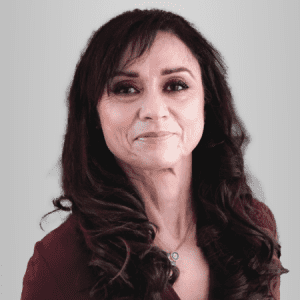Does Islamic finance seem a concept that’s totally foreign to you, something you’d solely associate with the Middle East? You may be surprised to find out what a significant and growing global force this now, is and how fintech organizations can benefit.
In the Islamic world, institutions operate in accordance with the guiding principles of Islam – both what the religion allows: halal, and what it prohibits: haram. – Banking is certainly no exception.
Islamic finance follows the principles of Sharia law. This means in practice that interest payments are not a feature of the banking system, as Islamic law forbids Muslim people to either receive or pay interest. Likewise, certain sectors are strictly avoided for investment such as tobacco, alcohol or gambling.
So how do Islamic banks provide help for home buyers?
A very popular type of Islamic ‘mortgage’ is Ijarah or ‘lease to own’. The bank purchases the property outright and the person who wants to eventually secure full ownership of the property pays both regular ‘rent’ to the bank for use of the property and also repays the purchase price in installments. Once the principal has been repaid in full, ownership is transferred.
As Syed Musheer Ahmed, Founder & MD of Finstep Asia explained,
“Ownership of the asset is transferred to the holder, and the asset is leased back to the insurer; the person is charged rent to use of that asset during the time period of the bond.”
Likewise, other financial systems have bonds which are, of course, interest-bearing instruments; yet ‘interest’ can never feature in a Sharia-compliant financial product. Instead, a sukuk is popularly used to generate regular income streams for investors. This is an Islamic financial certificate with some similarity to a bond. Through a sukuk investors hold a direct share in a specific tangible asset, and on the back of this are entitled to a share of the earnings that asset generates.
Specific services for specific community
These are clearly very different financial products to those seen from other types of banks. One exciting aspect is that even though these Sharia-compliant instruments have been especially developed for Muslims, they are by no means the only ones who could benefit here:
“These products clearly grew out of a religious context, but they could definitely be of strong interest to those of other faiths too.”
Another key factor is that close to two billion Muslims now live all across the world and it is imperative to provide them with financial services in accordance with Islam. This presents a significant market opportunity for fintechs everywhere. According to Musheer, there’s a vast and ever widening education gap to be plugged and huge global opportunities for taking Islamic banking digital.
“Senior management in banking needs to think about how to deliver new business services because it’s now a matter of survival. If these banks aren’t able to update their processes and their digital offerings are not sufficiently compelling, they will face existential threats. It’s up to key consultants like Vacuumlabs to tell them about the major opportunities they are potentially missing out on. Digital transformation is key. There is a huge need for outreach in the form of education.”
So how does Islamic finance actually work in practice? Some aspects may come as a surprise but features of Islamic finance could potentially be of benefit to you too. Find out more in our new Banking on Air podcast episode with Syed Musheer Ahmed – listen on Apple Podcasts, Breaker, Google Podcasts, Overcast, Pocket Casts, Spotify or here:
Here is a rundown of the episode:
- 01:00 Introduction of Musheer Ahmed
- 03:10 Introduction of Islamic finance and basic principles
- 19:00 International application
- 23:45 How can western fintechs engage?
- 28:35 Possible global application of Islamic finance
Links from the episode:
- Syed Musheer Ahmed on LinkedIn
- FinStep Asia on LinkedIn
- FinStep Asia web
- FinTech Association of Hong Kong on LinkedIn
- FinTech Association of Hong Kong web
—-
Syed Musheer Ahmed – Founder & MD- FinSTEP Asia, Founding Board Member – FinTech Association of Hong Kong:
Musheer is the Founder & Managing Director of FinStep Asia, which is building Asia’s next generation of Businesses and providing advisory on Fintech & Digital ecosystems in Asia. FinStep Asia is running a series of initiatives to enable fintechs to scale and expand across Asia, from East Asia to MENA. Musheer is the cofounder and board member of Fintech Association of Hong Kong and has an extensive background in financial services and technology, having been a global markets trader for a decade, and a management consultant following his MBA. He is also a member of the United Nations ESCAP ESBN Youth and Women Entrepreneurship Taskforce.
Musheer has a keen interest in technologies impacting/disrupting investment banking such as Artificial Intelligence, Digital Banking, RegTech, WealthTech and Blockchain. He has a strong passion to bridge India and China Greater Bay Area and has initiated various programs to connect the two ecosystems, in particular as cofounder of IndiaTech HK. He is a mentor and keynote speaker at industry events across the region and guest lecturer on topics of Fintech, Digital Banking, Investment Management, Cryptocurrency and Blockchain, Artificial Intelligence. He has written blogs & articles on Fintech and Investment Banking and been quoted in various media channels, including on CNBC, Bloomberg, SCMP, IFLR, CGTN, Financial Times, Asian Investor, MEDICI, Economic Times, etc.,
—
‘Banking on Air’ is covering the challenges, opportunities, perspectives and opinions that matter in the world of fintech, digital and community banking, payments and technology. Our hosts Helene Panzarino and Marcel Klimo will look under the hood of the changing face of tech: the acceleration in all things digital, the impact of regulation and disruption, the need for genuine collaboration, and the specter of competitors old and new as it plays out in fintech and financial services around the world.








